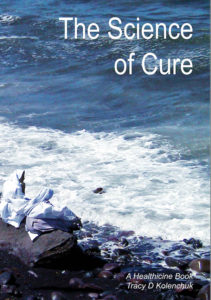 Is the glass half full, or half empty? The question has been debated forever, although the answer is obvious. The engineers are wrong, as usual, when they say “The glass is twice as large as it needs to be.” Pessimists say it’s half empty? Optimists say it’s half full? Where can we find the truth?
Is the glass half full, or half empty? The question has been debated forever, although the answer is obvious. The engineers are wrong, as usual, when they say “The glass is twice as large as it needs to be.” Pessimists say it’s half empty? Optimists say it’s half full? Where can we find the truth?
We need to step back. To take in a wider view of the situation. Once we step back, it’s easy to see:
When we are filling it up, it’s half full.
When we are drinking it down, it’s half empty.
Full, and empty are not states independent of action. They are judgments, based on actions and intentions. Is your cup of health half full? Or half empty.
When we are filling it up – it’s half full. When we are drinking it down, it’s half empty.
We are often filling our health glass, and we are often emptying it. Sometimes both at the same time. Is that so strange? Exercise builds our muscles, exposes us to risk of excess stress, depletes our energy and temporarily dehydrates us.
Healthiness is about balancing, not about balance. Health is not just about consumption. We might eat the healthiest foods, and drink the healthiest drinks, but we still have waste products to be excreted. We can’t eat all the time. Sometimes, the action that fills our healthiness is to avoid consuming. We need to think healthy thoughts – but sometimes we need to clear our mind. We need to believe in ourselves, to develop our goals and intentions, but sometimes we need to clear the slate, to make a fresh start, to renew our spirits. Sometimes we need to be alone, sometimes we need to be with friends. Sometimes, we improve our health, fill our community healthiness glass, by being independent, sometimes by helping others, sometimes by accepting assistance.
Health is wide and deep. Genetics, nutrition, cells, tissues, organs, systems, bodies, minds, spirits and communities. Each has many individual health factors and health processes. It is no simple task to maintain our health – to ensure our glasses are being filled up – and to enjoy our healthiness – to use the health that we have wisely.
Optimizing healthiness is even more complex – and there is little research to fall back on. We are, for a large part, on our own. Doctors study illness – few make serious studies of healthiness.
When one factor is too full, in excess, we have an unhealthiness of excess – more serious and we have an illness. An illness of excess.
When one is too empty, deficient, we have an unhealthiness of deficiency, more serious and potentially an illness of deficiency.
All illness emerges from deficiencies (too empty) and excesses (too full). But it’s not just things. We can be deficient or excessive in processes, in living life to the fullest, in exercise and in rest of body, mind, spirit, and community.
Health is not static. If we leave a half glass of water alone for a while, it will evaporate. We keep it half full by constantly filling it up — but not too much.. And so it is with health.
When we fill it too full – it may spill over. When we are too full of good things our health can fail. Most, possibly all nutrients become toxic when consume too much. Too much exercise can result in excess stress or injury. Too strong a spirit can overwhelm the health of our selves and our communities.
Is your health glass half full? or half empty? No matter. What matters is that you keep working to keep yourself healthy and enjoying your healthiness.
Everyone has a right to life, liberty and the pursuit of healthiness. We have a right to pursue health, and to use our health.
to your health, tracy
ps. When no-one is filling the glass, and no-one is emptying the glass, then the glass, like half a Buddhist Monk, is at one-half with itself.


